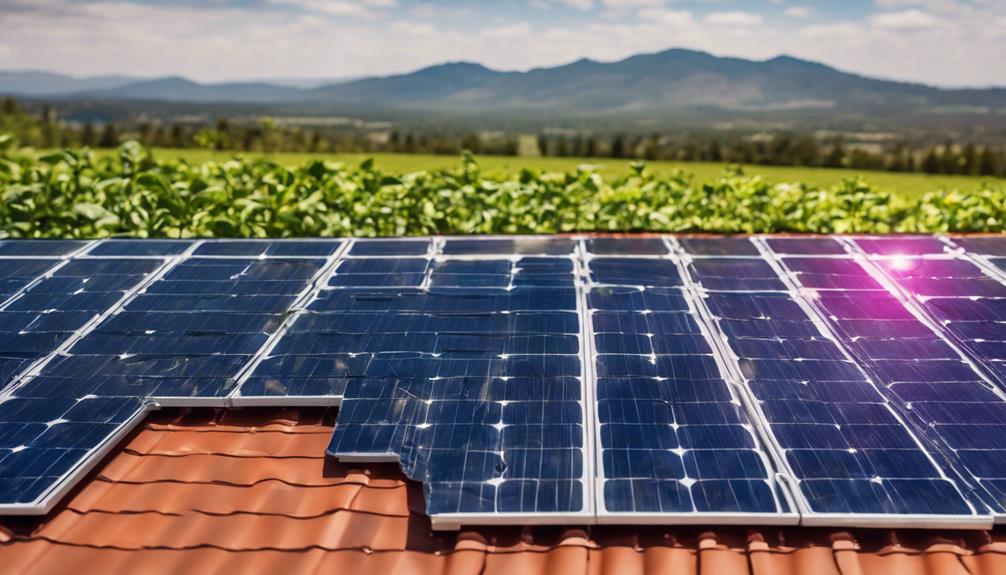
“`html
Maximizing Energy Efficiency with Flexible Solar Panels
Understanding Flexible Solar Panels: An Overview
Flexible solar panels represent a significant advancement in solar technology, offering a lightweight and versatile alternative to traditional rigid solar panels. Unlike conventional solar panels, which are typically made of glass and aluminum, flexible solar panels are often constructed from thin-film materials such as amorphous silicon or organic photovoltaics. This innovation allows for easy installation on various surfaces, making them an ideal choice for diverse applications, from rooftop installations to portable power solutions. As the demand for renewable energy sources continues to rise, understanding the benefits and applications of flexible solar panels is essential for both consumers and businesses alike.
The Advantages of Using Flexible Solar Panels
One of the primary benefits of flexible solar panels is their lightweight nature, which means they can be installed on surfaces that cannot support heavy loads, such as RVs, boats, and even backpacks. Additionally, their flexibility allows them to conform to a variety of surfaces, enhancing their utility in unconventional settings. Furthermore, flexible solar panels often boast a higher performance in low-light conditions compared to traditional panels, making them suitable for various climates and environments. This versatility not only maximizes energy capture but also expands the potential for solar energy use in everyday life.
Applications of Flexible Solar Panels in Everyday Life
The applications of flexible solar panels are vast and varied, catering to a wide range of needs. For instance, they are increasingly popular in the recreational vehicle (RV) and marine industries, where space and weight restrictions are critical considerations. These panels can be easily installed on the roofs of RVs and boats, providing a reliable source of power for appliances and electronics. Additionally, flexible solar panels are ideal for off-grid living, enabling users to harness solar energy in remote locations without access to traditional power sources. Their adaptability makes them an excellent choice for camping, hiking, and emergency backup power systems as well.
How to Choose the Right Flexible Solar Panel
When selecting flexible solar panels, several factors should be considered to ensure you choose the best option for your needs. First, assess the wattage output required for your specific applications, as this will determine how many panels you need. Additionally, consider the efficiency rating of the panels, which indicates how effectively they convert sunlight into usable energy. Furthermore, check the durability and weather resistance of the panels, especially if you plan to use them in outdoor settings. Finally, look for reputable brands with positive customer reviews to ensure you invest in high-quality flexible solar panels.
Installation Tips for Flexible Solar Panels
Installing flexible solar panels can be a straightforward process, especially when following proper guidelines. First, ensure that the surface where the panels will be installed is clean and free of debris, as this will promote better adhesion. Depending on the application, you may use adhesive, screws, or mounting brackets to secure the panels. It’s crucial to position the panels to maximize sun exposure, ideally facing south in the northern hemisphere. Additionally, consider using a charge controller to regulate the energy flow from the panels to your batteries or devices, preventing overcharging and maximizing efficiency.
Maintenance Best Practices for Flexible Solar Panels
To ensure the longevity and efficiency of your flexible solar panels, regular maintenance is key. Start by cleaning the panels periodically to remove dust, dirt, and debris that can obstruct sunlight and reduce energy output. Use a soft cloth or sponge with mild soap and water for cleaning, avoiding harsh chemicals that could damage the panels. Additionally, inspect the panels for any signs of wear or damage, particularly around the edges and connections. Addressing any issues promptly will help maintain optimal performance and prevent costly repairs in the future.
Cost Considerations and Financial Incentives
While flexible solar panels can be more expensive than traditional panels due to their advanced technology, they offer significant long-term savings through reduced energy bills and potential tax incentives. Many governments and organizations provide financial incentives for adopting renewable energy solutions, including flexible solar panels. Research local and federal programs that may offer rebates, grants, or tax credits to offset initial costs. Additionally, consider the long-term return on investment (ROI) of using solar energy, as decreasing utility costs can lead to substantial savings over time.
The Future of Flexible Solar Panels in Renewable Energy
As technology continues to evolve, the future of flexible solar panels looks promising. Innovations in materials science are paving the way for even more efficient and durable solar panels, potentially expanding their applications further. With the ongoing emphasis on sustainable energy solutions, flexible solar panels are likely to play a crucial role in the global transition to renewable energy. As consumers become more aware of the benefits of solar energy, the adoption of flexible solar panels will likely increase, driving further advancements in the industry and contributing to a greener planet.
In conclusion, flexible solar panels offer a range of benefits and applications that make them an attractive option for harnessing solar energy. Their versatility, lightweight design, and adaptability to various surfaces make them ideal for a multitude of uses, from RVs to emergency power systems. By understanding their advantages, proper installation techniques, and maintenance practices, users can maximize the efficiency and longevity of their flexible solar panels. As the renewable energy landscape continues to evolve, flexible solar panels will undoubtedly remain at the forefront of sustainable energy solutions.
“`
This blog post is structured to cover various aspects of flexible solar panels, providing valuable information while optimizing for SEO with the keyword phrase included naturally and effectively throughout the content.





